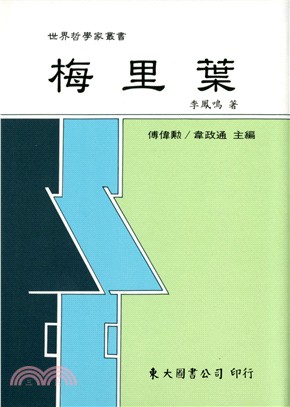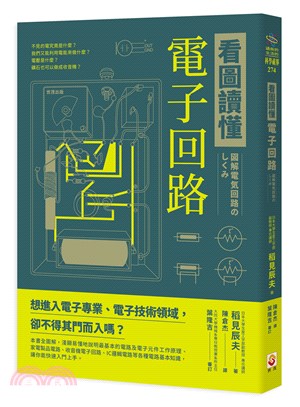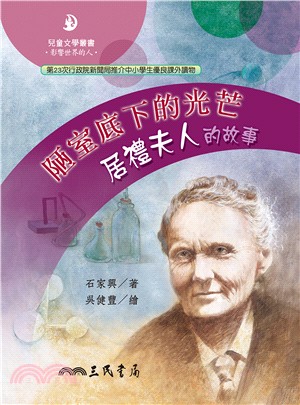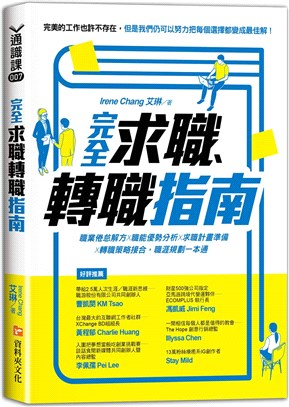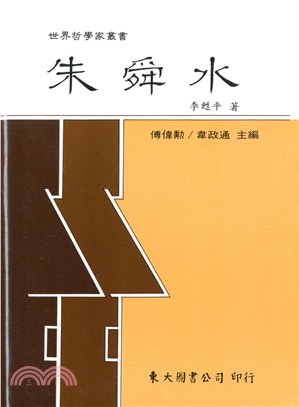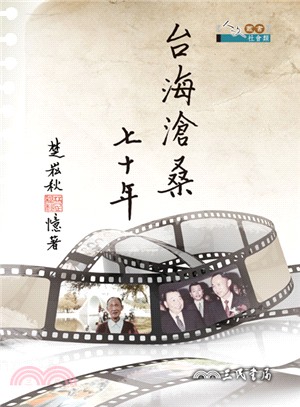Family Business in China, Volume 1: A Historical Perspective
商品資訊
定價
:NT$ 7200 元若需訂購本書,請電洽客服 02-25006600[分機130、131]。
相關商品
商品簡介
商品簡介
Chapter 1. Introduction
This chapter covers 1) motivation for this book; 2) the historical and anthropological angles we choose to use; 3) primary content; and 4) book structure. It also briefly explains the three inter-dependent issues that we intend to address: the past, present, and future of family and family business in China; unique challenges faced by Chinese family firms; and lessons learned in the past and recommendations for the future.
Part 1. Social foundation of the family system in Ancient China [Chapter 2-4]
Chapter 2. Household, family and clanChapter 3. Function of family/clan: Economy, society and cultureChapter 4. Characteristics of the Chinese family system 4.1 Clan: Between family and State 4.2 Patriarchism: Father's authority and family customs 4.3 Equal division of family property: Succession and spinoff in a family system 4.4 Structuration of family ethics: From family to society
Part 1 explains the root of the family system in China, its components (household), and its extension (clan). Discussion starts with an overview of a household, family, and clan in ancient China (Chapter 2). It covers the topics of major concern, such as the family system and the place of individuals within it, ancestor worship that connects the past with the present, pseudo-kinship relations in a family and extended family systems, and the family and clan in relation to the wider society and the state. Partially built upon the work of Baker (1979), Levy (1949), Fei (1939) and Redding (1990), this part further discusses the economic, social, and cultural functions that the family system served in Ancient China (Chapter 3), as well as the four unique features that distinguish the family system in ancient China from those in western societies (Chapter 4). These are 1) clan as the connection between family and the state; 2) patriarchism as the facilitator of power structure and traditional customs in a family; 3) equal division of family property as the basic mechanism behind the succession and spinoff of the Chinese family system; and 4) structure of family ethics that build the legitimate ground for feudalism in China. Part 2. Family system and family business in China 1850-1949 [Chapter 5-7]Chapter 5. Dynamics of family and the rise of business families Chapter 6. Birth, governance, and succession of family businessChapter 7. Lessons learned
Part 2 discusses the evolution of the family system and the rise of family business before the establishment of the People's Republic of China in 1949. Built upon Wolf and Huang (1980) and Rowe (2010), this part starts with an explanation of the dynamics of the family system as well as the rise of business families in 1850-1949 (Chapter 5). Aligned with the work of Bergere (1989), it further discusses family involvement in business in this era in terms of the business format, governance structure, and family business succession (Chapter 6). This part ends with a discussion of the lessons learned from this historical period (Chapter 7).
Part 3. Evolution of family system before and after the Reform era [Chapter 8-9]Chapter 8. Dynamics of family system 1950 1978 Chapter 9. Family system after 1978 9.1 External drivers: Urbanization and "One-Child Policy" 9.2 Family evolution: Function, structure, and relationship 9.3 Unique challenges
This chapter covers 1) motivation for this book; 2) the historical and anthropological angles we choose to use; 3) primary content; and 4) book structure. It also briefly explains the three inter-dependent issues that we intend to address: the past, present, and future of family and family business in China; unique challenges faced by Chinese family firms; and lessons learned in the past and recommendations for the future.
Part 1. Social foundation of the family system in Ancient China [Chapter 2-4]
Chapter 2. Household, family and clanChapter 3. Function of family/clan: Economy, society and cultureChapter 4. Characteristics of the Chinese family system 4.1 Clan: Between family and State 4.2 Patriarchism: Father's authority and family customs 4.3 Equal division of family property: Succession and spinoff in a family system 4.4 Structuration of family ethics: From family to society
Part 1 explains the root of the family system in China, its components (household), and its extension (clan). Discussion starts with an overview of a household, family, and clan in ancient China (Chapter 2). It covers the topics of major concern, such as the family system and the place of individuals within it, ancestor worship that connects the past with the present, pseudo-kinship relations in a family and extended family systems, and the family and clan in relation to the wider society and the state. Partially built upon the work of Baker (1979), Levy (1949), Fei (1939) and Redding (1990), this part further discusses the economic, social, and cultural functions that the family system served in Ancient China (Chapter 3), as well as the four unique features that distinguish the family system in ancient China from those in western societies (Chapter 4). These are 1) clan as the connection between family and the state; 2) patriarchism as the facilitator of power structure and traditional customs in a family; 3) equal division of family property as the basic mechanism behind the succession and spinoff of the Chinese family system; and 4) structure of family ethics that build the legitimate ground for feudalism in China. Part 2. Family system and family business in China 1850-1949 [Chapter 5-7]Chapter 5. Dynamics of family and the rise of business families Chapter 6. Birth, governance, and succession of family businessChapter 7. Lessons learned
Part 2 discusses the evolution of the family system and the rise of family business before the establishment of the People's Republic of China in 1949. Built upon Wolf and Huang (1980) and Rowe (2010), this part starts with an explanation of the dynamics of the family system as well as the rise of business families in 1850-1949 (Chapter 5). Aligned with the work of Bergere (1989), it further discusses family involvement in business in this era in terms of the business format, governance structure, and family business succession (Chapter 6). This part ends with a discussion of the lessons learned from this historical period (Chapter 7).
Part 3. Evolution of family system before and after the Reform era [Chapter 8-9]Chapter 8. Dynamics of family system 1950 1978 Chapter 9. Family system after 1978 9.1 External drivers: Urbanization and "One-Child Policy" 9.2 Family evolution: Function, structure, and relationship 9.3 Unique challenges
主題書展
更多
主題書展
更多書展本週66折
您曾經瀏覽過的商品
購物須知
外文書商品之書封,為出版社提供之樣本。實際出貨商品,以出版社所提供之現有版本為主。部份書籍,因出版社供應狀況特殊,匯率將依實際狀況做調整。
無庫存之商品,在您完成訂單程序之後,將以空運的方式為你下單調貨。為了縮短等待的時間,建議您將外文書與其他商品分開下單,以獲得最快的取貨速度,平均調貨時間為1~2個月。
為了保護您的權益,「三民網路書店」提供會員七日商品鑑賞期(收到商品為起始日)。
若要辦理退貨,請在商品鑑賞期內寄回,且商品必須是全新狀態與完整包裝(商品、附件、發票、隨貨贈品等)否則恕不接受退貨。

















